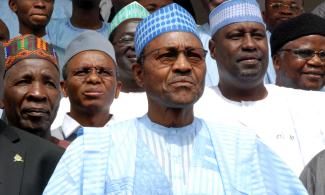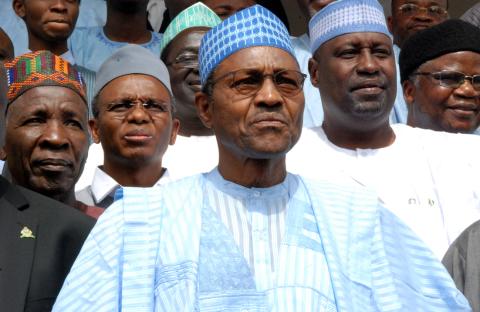
The All Progressives Congress Presidential Campaign Organization, APCPCO said that the resort to violence in whatever form and level was not acceptable and justifiable.

ABUJA – Presidential candidate of the All Progressive Congress, APC, General Mohammadu Buhari yesterday reacted to the massacre in Benue State, saying blood shedding was an ill wind that blows no good.
It will be recalled that scores of people mainly women and children were killed in cold blood by suspected herdsmen at Agatu Local Government Area of Benue State on Sunday.
In a statement in Abuja on Monday, the All Progressives Congress Presidential Campaign Organisation, APCPCO said that the resort to violence in whatever form and level was not acceptable and justifiable.
The statement which was signed by Mallam Garba Shehu, Director of Media and Publicity of APCPCO quoted Buhari as deeply saddened, regretting that the cordial relationships that once existed between and among the people have been replaced by intolerance and hate.
The statement however blamed the country’s leadership for not dealing with the frequent communal clashes between Fulanis and Benue communities over disputes about farmlands and grazing lands.
“Political leaders should be able to build trust among the people as the basis for dialogue. If the people can no longer listen to their leaders, such crises might persist and make life more miserable for the people”, the statement said.
While condoling the families of the victims of violence in the State, APCPCO called on all politicians regardless of partisan divide, to unite and speak with one voice over the embarrassing incidents.
It also enjoined interested parties to recognize the rights of each other make compromises for the sake of peace, explaining that confidence building was the only approach the people could be brought together for dialogue at the negotiation table.
“In moments of tensions, leaders should rise to the occasion and be part of the solution”, it said
The APC Campaign however advised Nigerians to stop killing one another when they faced the basic challenges of survival including insecurity, unemployment, hunger, disease and poor governance caused by corruption and other manifestations of bad leadership.